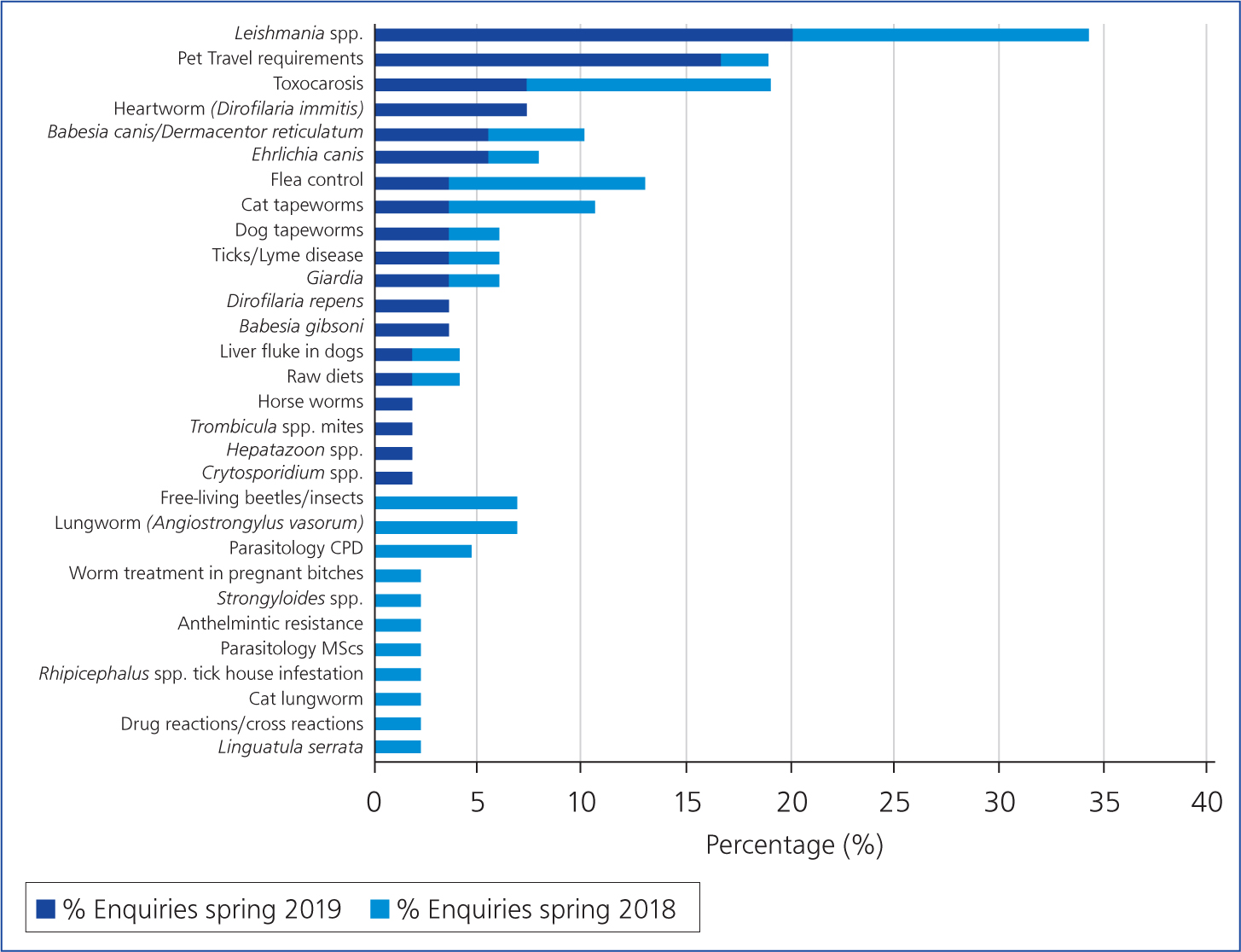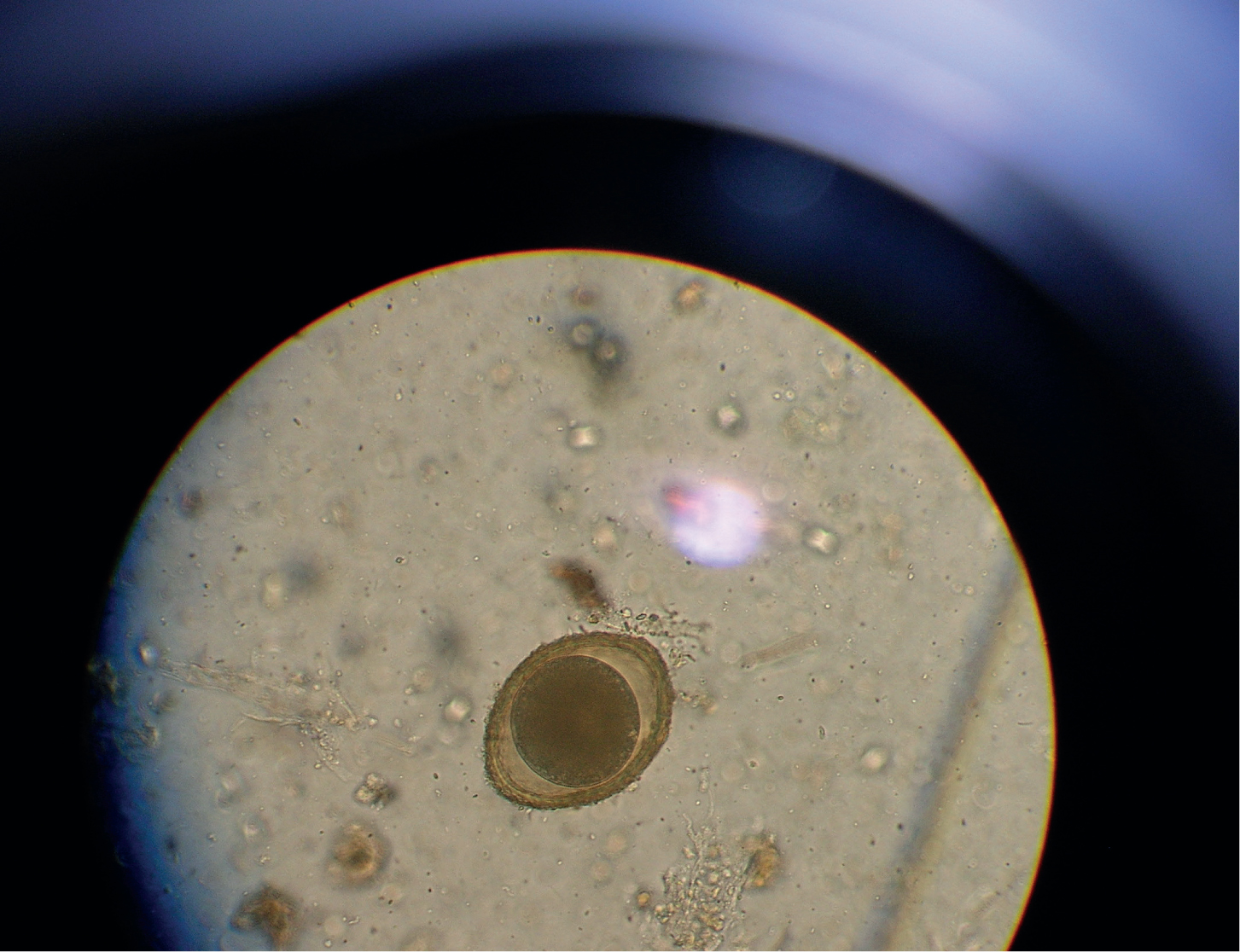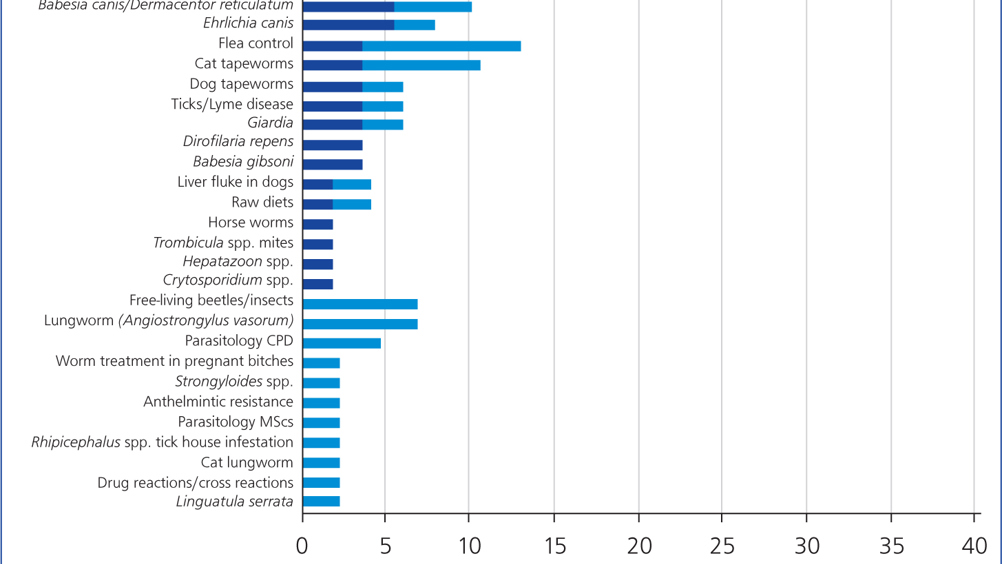It was expected that 2019 would have a heavy focus on travelling pets, legislation and exotic disease, due to ongoing Brexit activity. Drawing from information published in the ESCCAP UK & Ireland Parasite Forecasts, this article takes a look at how 2019 is progressing to date and identifies some of the similarities and differences compared with 2018.
Key themes and hot topics
This time last year, the key themes were:
So far in 2019 the key themes are:
The general theme of pet travel has remained a hot topic throughout 2018 and into 2019. There has been less focus on Brexit as a whole, but concern is mounting among owners who travel with their pets abroad that leaving the EU without a deal will severely impact their short- and long-term plans. However, so far in 2019 focus has been more specifically on travel regulations and exotic parasites rather than the specifics of illegal and legal pet importation.
Despite this, imported rescue pets do continue to be a highly emotive issue, with increasing numbers of people wanting to help stray and afflicted pets from abroad, despite the dangers that imported disease may bring. Spring 2019 saw two reported cases of Leishmania spp. in untravelled UK dogs, acting as a reminder that although we do not currently have the sandfly vector in the UK, we should not be complacent about the establishment of Leishmania spp. here. ESCCAP UK & Ireland has also been alerted to numerous cases of heartworm and exotic tick-borne disease in dogs imported from across the globe as well as the EU.
In 2018 there was strong focus on domestic parasites including Toxocara spp., fleas, Angiostrongylus vasorum and cat tapeworms. There was also added vigilance about free-living beetles and other insects, and any risks they may pose. Although interest is still there for other domestic parasites, the 2019 hot topic is toxocarosis.
ESCCAP UK & Ireland enquiry data
Each year, ESCCAP UK & Ireland provides an enquiry answering service for the public, and produces quarterly reports of the topics raised in order to identify possible trends (see Figure 1).

The most notable difference in enquiries between 2018 and 2019 is an increase of 14.4% about pet travel requirements. Heartworm (Dirofilaria immitis) enquiries have also increased from 0 to 7.4% in 2019 and Ehrlichia canis enquires have increased by 3.3%. Enquiries about domestic parasites have decreased in 2019, with enquires about lungworm (Angiostrongylus vasorum) and free-living beetles/insects down by 7% each. Enquiries about CPD have also reduced, with none recorded so far in 2019.
Consistently popular topics are those about Babesia canis/Dermacentor reticulatus, toxocarosis and Leishmania spp. which complements the hot topics in 2019. Interestingly, there have been no enquiries in spring 2019 for Linguatula serrata nor for Rhipicephalus sanguineus tick house infestations. However, it is expected that enquiries such as these will increase as the travel season gets underway.
Research in 2019
HyData
HyData UK is a 3-year (2016–2018) multi-centre collaborative study investigating the national distribution of Echinococcus granulosus in high-risk dog populations (hunting hounds, farm dogs and pet dogs in rural areas), live-stock (cattle, sheep) and horses at slaughter in England, Wales, Scotland and Northern Ireland (Collins et al, 2016). The study aims to build the most comprehensive picture of E. granulosus geographic distribution in the UK and explore associated risk factors for animal and human infection. Until these results become available later this year, prevention advice to pet owners must be based on the lifestyle risk of the pet.
Toxocara spp. contamination study
ESCCAP UK & Ireland have funded a study, being carried out by Nottingham Vet School, investigating the prevalence of Toxocara spp. eggs (Figure 2) in public sandpits in the UK, the degree of contamination and the risk it may pose to public health. The study will provide much needed statistics for environmental Toxocara spp. contamination. The most recent figures from Lancashire indicate that prevalence of patent infection in untreated cats and dogs is high, with 5% in dogs and 26% in cats. There remains no current data on the prevalence or incidence of human toxocarosis in the UK.

Big Flea Project
The Big Flea Project results have been released, finding 28.1% of cats and 14.4% of dogs positive for fleas (Abdullah et al, 2019). Veterinary practices from across the UK made random inspections of cats and dogs brought into the practice during April and June 2018. Flea samples were taken from those found positive for fleas and were sent for DNA analysis. Of the infested pets, 11.3% were found to be harbouring fleas infected with Bartonella spp. An infected population of this size puts the UK pet-owning population at significant risk of exposure to this zoonotic pathogen, making routine flea control essential for all domestic cats and dogs. Also, 3% of the fleas were positive for Dipylidium caninum but less than 1% were positive for Mycoplasma spp. This information goes a long way towards enabling provision of accurate risk-based flea advice.
Seroprevalence study in dogs
ESCCAP UK & Ireland are carrying out a seroprevalence study in dogs across the UK in collaboration with IDEXX Laboratories. Testing will be carried out for Borrelia spp. and Anaplasma spp. This will create the first meaningful data set indicating how these pathogens in Ixodes ticks are translating into infection in dogs.
Conclusions
The conclusion of a number of long-awaited UK studies on domestic parasites is set to provide new data sets that will advance our understanding of the trends and developments of domestic parasites and allow us to better model the risk posed to UK cats, dogs, pet owners and the general public. Also by the end of 2019, we should be in a more knowing position (following Brexit) to take steps to mitigate against the growing number of imported parasitic diseases entering the country from travelling and imported pets. In all, 2019 is already proving to be a year of enhanced knowledge.


